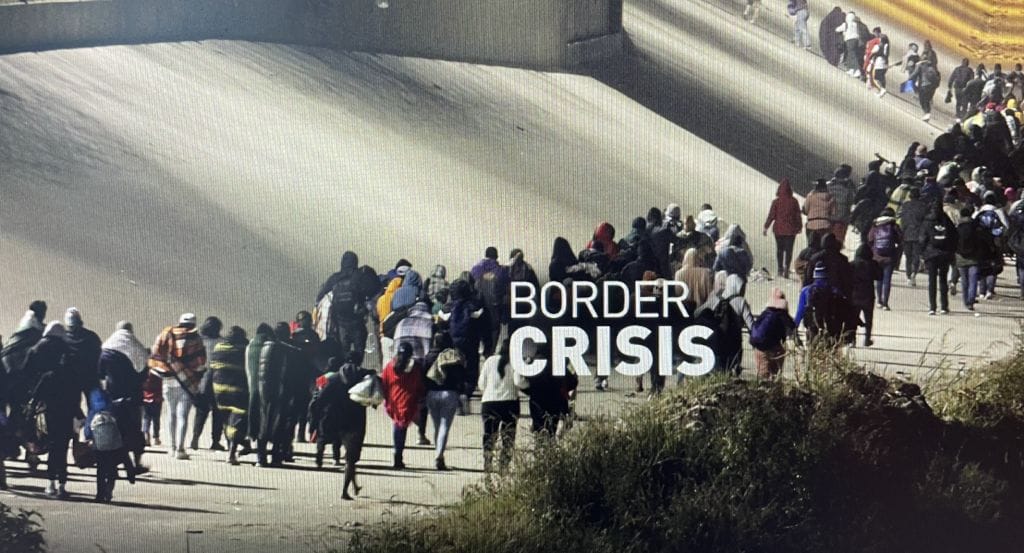Way back in 1778, the Continental Congress unanimously passed America’s first whistleblower law. It recognized the duty to “give the earliest information to Congress… of any misconduct, frauds or misdemeanors” committed by anyone working for government. Two hundred forty-six years later, whistleblowers have an incredible record of changing the course of history.
The following is a transcript of a report from “Full Measure with Sharyl Attkisson.” Watch the video by clicking the link at the end of the page.
Perhaps the most dramatic recent whistleblower case involves the IRS probe of President Biden’s son, Hunter. Two chief IRS investigators testified to Congress. And recently spoke on Full Measure, saying the Justice Department under both Trump and Biden stepped in to protect the Bidens and keep the IRS from following leads regarding Joe Biden and foreign business dealings.
Whistleblower Joseph Ziegler says he is gay and a Democrat — but apolitical.
Sharyl (February 18): The press and many people, actually in both political parties, say things such as, “There’s no evidence tying Joe Biden to Hunter Biden’s businesses or any improper activities.” When you hear that, what do you think?
Joseph Ziegler (February 18): I think it’s blatantly false. I would wholeheartedly disagree with it.
Marcel Reid: Whistleblowing is about truth-telling.
Marcel Reid was on the national board of the civil rights group ACORN in 2009, when she and several colleagues discovered crimes and cover-ups at the highest level.
Reid: I went on to report theft, or embezzlement, however you wish to state it, within the organization.
ACORN had received millions in federal tax money and endorsed Barack Obama for president. The group eventually admitted the fraud and put the amount of embezzled funds at $5 million — but refused a forensic audit.
Sharyl: And as a result of blowing the whistle, you saw what happens too often, I guess, to whistleblowers, the treatment that you got. You were, sort of, dragged through the mud and smeared. It must have been tough.
Reid: It was tough. For me and 95% of the whistleblowers who do it, our lives are simply ruined. Luckily, I was resilient enough to overcome it. But I know so many who aren’t. And I want to fight the perception that you blow the whistle, you get a book deal, you do a movie, and you become famous, because that isn’t what happens.
Since then, Reid has put in a lot of energy toward helping other whistleblowers. That includes organizing an annual summit in Washington, D.C. and giving Pillar Awards to whistleblowers and First Amendment rights advocates.
Award-winners include Daniel Ellsburg. He leaked classified documents known as the Pentagon Papers to The New York Times in 1971, revealing America’s involvement in the Vietnam War before the U.S. had acknowledged it. The Nixon administration tried to censor the material, but the Times won the right to publish.
Another Pillar award recipient is Frank Serpico. As a New York City police officer in the late 60s, Serpico blew the whistle on rampant police corruption on the force. Al Pacino played him in the 1973 movie.
Reid says whistleblowers may come under attack by the political right or left, government, media, whoever feels threatened.
Reid: The first thing I learned as a whistleblower is, it doesn’t matter that you’re telling the truth about a particular side. What matters is that whatever the narrative is, you’ve thrown it off.
Sharyl: What would you say is the state of whistleblowing in America today?
Reid: People are calling themselves whistleblowers that are not. There’s a simple rule for whistleblowing. You blew the whistle when something was at stake. That is when you blow the whistle, not after your 401 is secure, your job is secure, and your kid has been accepted to whatever school you’ve slotted for them. Because it doesn’t make what you’re saying less true — but it does not make you a whistleblower.
Sharyl: And what is sort of a take-away message or the thing that you would want people to know about the whole idea of whistleblowing?
Reid: So people think that the defenders of democracy wear uniforms. That’s absolutely true. But the ultimate defenders of democracy are those who are willing to tell the truth and withstand the cost. And there is no such thing as telling the truth and paying no cost.
Sharyl (on-camera): Most whistleblowers get nothing but grief — but there are exceptions. Last year, under a special government program, the U.S. Securities and Exchange Commission paid an anonymous whistleblower a record $279 million in a case that led to corporate violators paying out $4 billion.

Visit The Sharyl Attkisson Store today
Unique gifts for independent thinkers
Proceeds benefit independent journalism




There is a very good chance that a new government employee will observe a past practice that is inefficient, outdated and possibly in violation of some policy or law. If such an employee chooses to “go along” with the conspiracy, there is a great chance that nothing will be improved or changed. If the employee has the courage to question the particular illegal or bad practice, a coworker or a supervisor may become indifferent or in some cases angry. “We have always done it that way” are the dangerous words that may follow. If the new employee hears these words they must take cover – an attack is immanent. The old employee may very well begin the black ball process and an otherwise promising career may be dashed in a moment simply for trying to do the right thing. This and many other renditions are a small part of what I experienced as a Minneapolis Police Officer. Government employees are resistant to change, and they will ruin anyone or anything that gets in their way. Violence and other criminal behavior are acceptable practices by those who fear exposure and/or change.
Thomas Joseph Hussman,
Re : “ . . . trying to do the right thing.” ???
It’s far, far worse than you may know—or care to reveal :
https://sharylattkisson.com/2021/02/poll-majority-of-republicans-now-favor-a-third-party/#comment-85377
-Rick